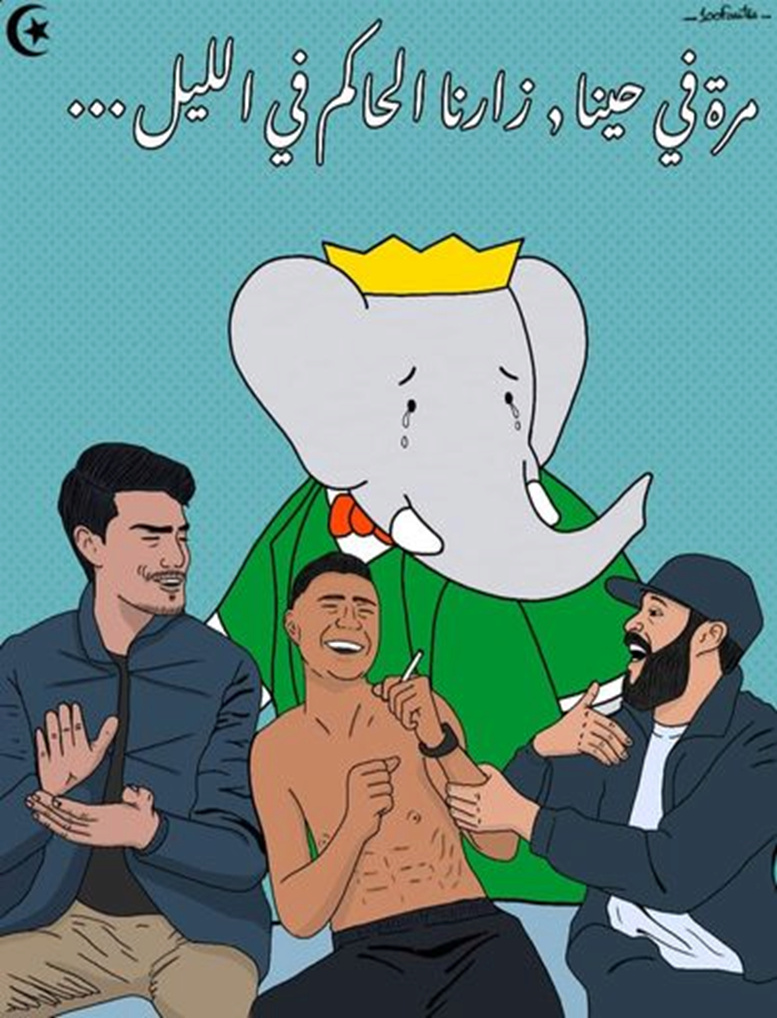President of the Tunisian Journalists Syndicate: "There is a tendency to suppress freedom of expression, and we feel that we are all in a state of temporary release"

The head of the Tunisian Journalists Syndicate, Mohamed Yassine Jelassi, speaks during a protest to demand freedom of the media, in front of the municipal theater in the Tunisian capital, May 5, 2022.
Criticism is increasing within the human rights and civil circles in Tunisia regarding the restrictions on freedom of information and expression, which are the most prominent gains of the 2011 revolution. These concerns are evident in the prosecution of journalists and a radio director in cases that the media circles say are "related to their work as journalists." The case of arresting two young men on the background of a song mocking security forces, before their release, also increased criticism of Qais Saeed's authorities regarding their "disrespect for freedoms." On all these files, an interview with the head of the Tunisian Journalists Syndicate, Mohamed Yassine Jelassi, took place.
"Even the elephant Babar is in prison." With these words, Tunisians expressed on social media their shock at the arrest of two students, Tuesday, in the northeastern region of Nabeul, because of a satirical song about the police and the law punishing drug consumers, and the judiciary charged them with "insulting others through social networks." and "attribution of incorrect matters to a public official". before they were released Thursday.

The arrest of these two young men comes in the midst of what observers, activists, and civil societies see as an ever-increasing restriction on public freedoms - at least in terms of freedom of the press and expression - since the "exceptional measures" of President Qais Saeed.
With the series of prosecutions against journalists and the official of a media institution, can it be said that the Tunisian press has entered a new turning point in defending its freedom after a period of openness since 2011?
Mohamed Yassine Jelassi: With the series of arrests and trials that we are experiencing today, we are definitely witnessing a new turning point in the history of the Tunisian press. Dozens of media activists and journalists are being referred to court. There is a huge and very serious decline in the level of freedom of the press and expression. The crackdown on journalists started a while ago, but things have gotten worse since President Kais Saied took the controversial measures. There is a clear backlash against freedom of expression and the press.

The syndicate described Decree 54, related to combating crimes related to information and communication systems, as an "imminent danger" facing the Tunisian press. What is the reason for your rejection of the decree and why do you accuse the Minister of Justice of being responsible for the prosecution campaign?
Decree 54 came to restrict freedoms and prosecute opinions. No one was prosecuted under this decree except for people who expressed their opinions, including journalists, civilians, and lawyers, and the Minister of Justice was the most person to prosecute journalists. It gives clear and direct written instructions to the Public Prosecution in order to open these cases, and it was not opened because of false or false news, but rather to journalists and media professionals who expressed their opinions and criticized the government or reported facts, as happened with the journalists who are currently being prosecuted, and they are Amin Al-Dabaybi, Minya Al-Arfawi and Muhammad Buglab.
How do you read the arrest of young people who published a song satirical about security, is there any message from the authorities regarding freedom of expression?
The arrest of young men clearly falls within the context of a comprehensive and complete restriction of freedoms. The prosecutions do not only affect the students, but there are others whose cases were not covered by the media. For example, a young man in Kasserine province posted a picture on Facebook with the slogan "The Revolution Continues" and found himself arrested. There are many who are referred to justice after being arrested in cases such as "insulting a public official" and "harming the morale of the security forces." There is an impression that Tunisians are on temporary release and everyone is at risk of being arrested at any moment.

I was a journalist in an opposition newspaper during the era of the late President Zine El Abidine Ben Ali, who was described as a dictator. Is it correct to compare that era with the current situation?
It is not possible to compare what is happening now with what was the situation in the era of Ben Ali, as the contexts are different. There are differences between the time of dictatorship and the time after the revolution, but the current authority wants to use the same tools of dictatorship. However, the freedom people have experienced over the past decade makes them cling to freedom of opinion, expression, criticism, and demonstration. The era of openness and technological development does not coincide with the current practices of power. This does not preclude very serious indications of a trend towards repression and isolation. The verdict issued against the journalist Khalifa Al Qasimi has not been seen before, even during the time of Ben Ali.
Among Tunisian journalists, there is often talk of a fragile social situation for many of them. Has this weakened their defense of freedoms?
The fragile social situation of journalists is at the top of the Syndicate's priorities, but even journalists who suffer from a difficult situation participate with us in all movements and demonstrations to defend freedom of expression. Everyone is aware that there is no trade-off between the economic and social rights of journalists and freedom of expression. The union organized a strike on Tuesday because of the lack of wages for Channel 9 journalists, and today, Thursday, we organized a stand in solidarity with our imprisoned colleague, Khalifa Al Qasimi.
Source: websites

